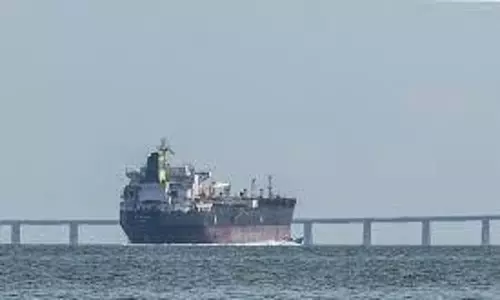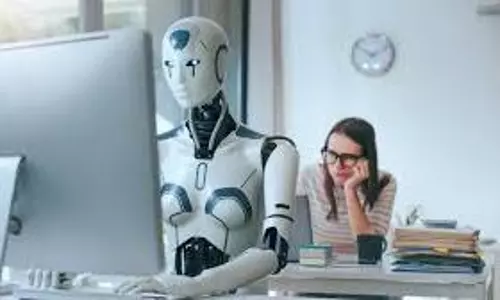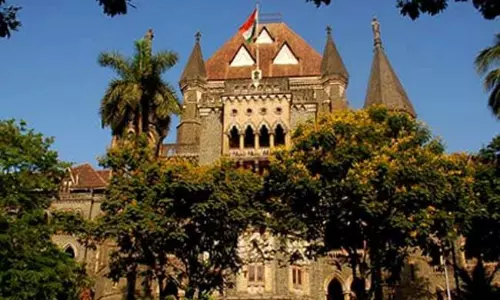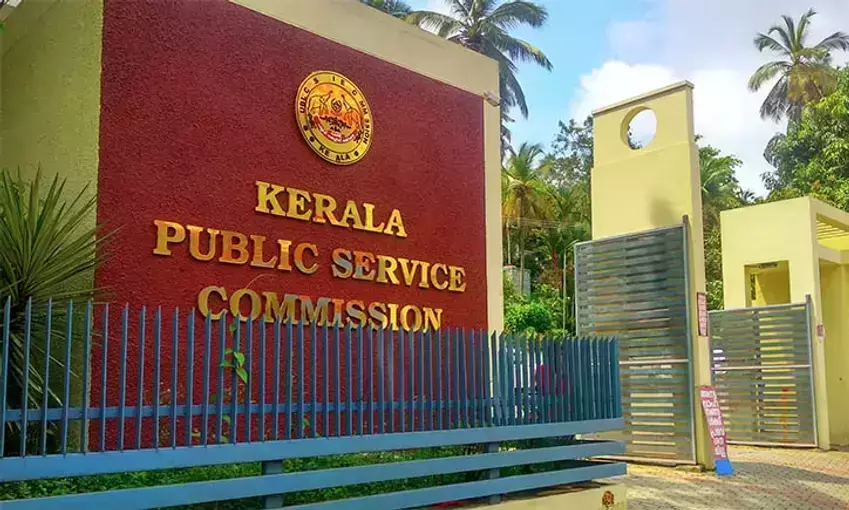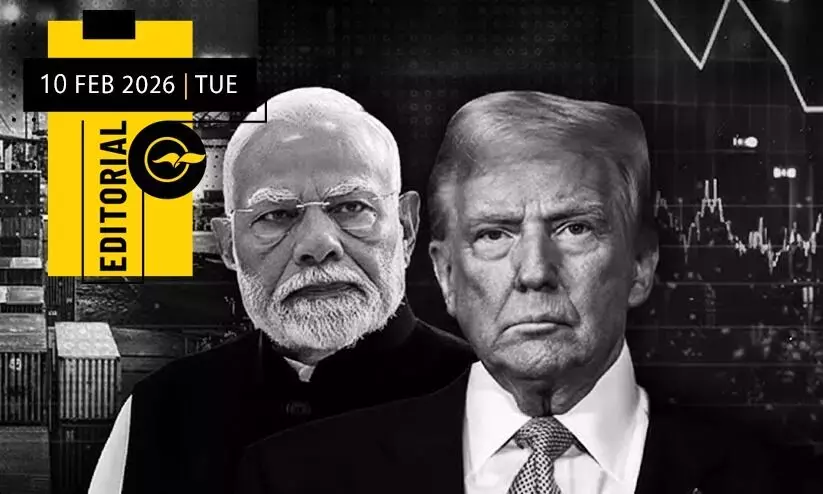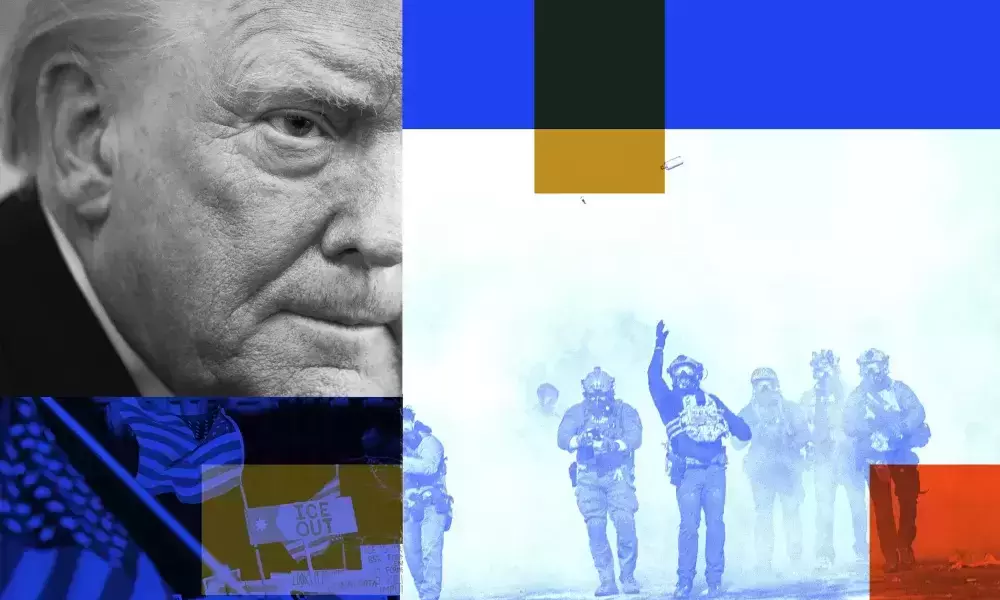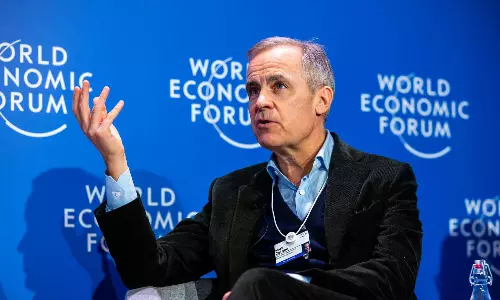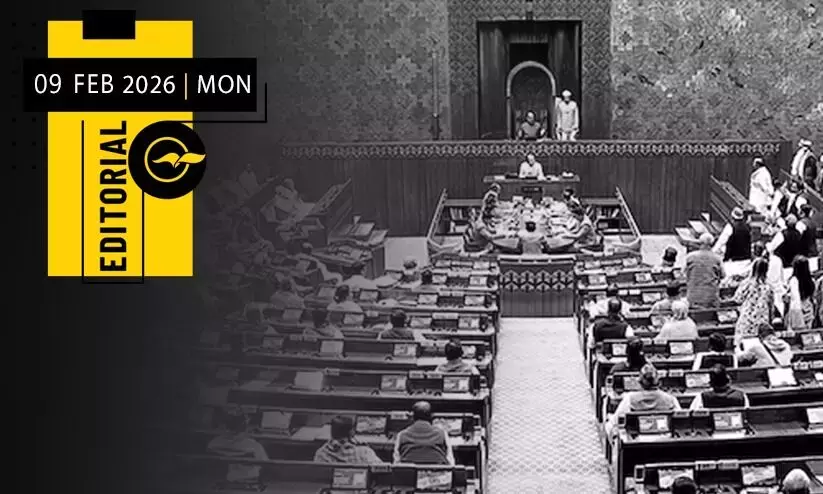
Angela Merkel's new alliance
text_fieldsGermany is the power-house of Europe-the fourth financial power in the world. Friendliness with the neighbours, internal security, economic development, and job opportunities for the youth-all these are factors that contribute to her strength. But, the 2017 election couldn't succeed in the formation of a coalition government. Hence, even though Angela Merkel was ruling as the chancellor of Germany, hectic exchanges were going on behind the scene among the parties to form a coalition government. As the president Frank WalterSteinmer states, Germany seems to have accepted a coalition set-up as her tradition. However, now even though it is after five months’ waiting, it is a positive signal that they have finalised an alignment for the federal government.
The marathon discussion between the Christian Democratic Union (CDU) and Social Democratic Party (SPD) held in February 2018 has paved the way for this alignment. Though SPD has been a partner in the government, its performance in the 2017 election was not anythingimpressive. The percentage of votes it received in the election was less than that in the previous election in 2013. SPD's leader Martin Schultz decided to quit the government and work for the party. But, now it has decided to take a U turn in order to support Angela Merkel. Merkel, quite queer, has offered the finance portfolio to SPD. This is a pragmatic step by Angela Merkel for the integration and security of Germany.
The wind of political fragmentation was blowing across Europe. Election in Germany took place in the aftermath of the victory of Donald Trump. The British had shown green signal to 'Brexit'. Both these had an impact on the election. Fascist forces and the neo-Nazis were propagating chauvinistic ideas. This enabled the right wing party 'Alternative for Deutschland' gain access to the Bundestag. It was at this juncture, Angela Merkel welcomed the refugees from Syria and Libya. Millions of miserable people were given shelter and means of livelihood. Yet, Angela Merkel’s CUD gained 32.6 percent votes and emerged as the largest party in parliament. Angela Merkel became the Chancellor for the fourth time, a record in the political history of Germany.
Angela Merkel, a doctorate holder in physics, was taking care of the academic affairs at the Berlin Institute of Physical Chemistry. Had it not been for the fall of the Berlin Wall, Merkel would have doubtlessly pursued the academic career in one of the state-run universities in East Germany. By late 1988, following Soviet leader Michael Gorbachev’s 'perestroika', East Germany’s calcified communism collapsed and East Germans fled to the west. Her mother Herlinde said, "if the wall falls, we’ll go to West Berlin and eat oysters". In communist-free Germany, ngela Merkel joined Christian Democratic Union. The 'unification chancellor' Helmet kohl badly needed East Germans in the party. He found Angela Merkel an ideal fit. She became the minister for women and youth in 1991. In 2009, Angela Merkel said in an interview, “I wanted to get into parliament. I wanted German unification to happen quickly and wanted a market economy."
Merkel became the Chancellor in 2005. Her second term coincided with the Euro crisis. Her unique handling of it made her mark indelible. She improved the standard of living in Germany, increased the job opportunities for the youth and made Germany stable. In the third term (2013), she had the best results- 41.5 percent of votes. Thus, Angela Merkel became Europe’s longest serving female head of the government. Now, she wants to end the forced austerity by giving social security benefits to the people. She promises a minimum wage to the workers. Being pragmatic, she takes steps after weighing risks.
The traditional parties in Europe are undergoing changes. Angela Merkel is thinking of handing over party responsibilities to a promising young member. She has found Annegret Kramp Karrenbauver, 55, as the general secretary of CUD. She is the successful prime minister of the tiny federal state, Sarland. She is cool and unpretentious, popularly known as ‘Mini Merkel‘. Annegret also is a pragmatist, not hard with any ideological rigidity. Merkel and Annegretcan rely on each other for the future of Germany.






